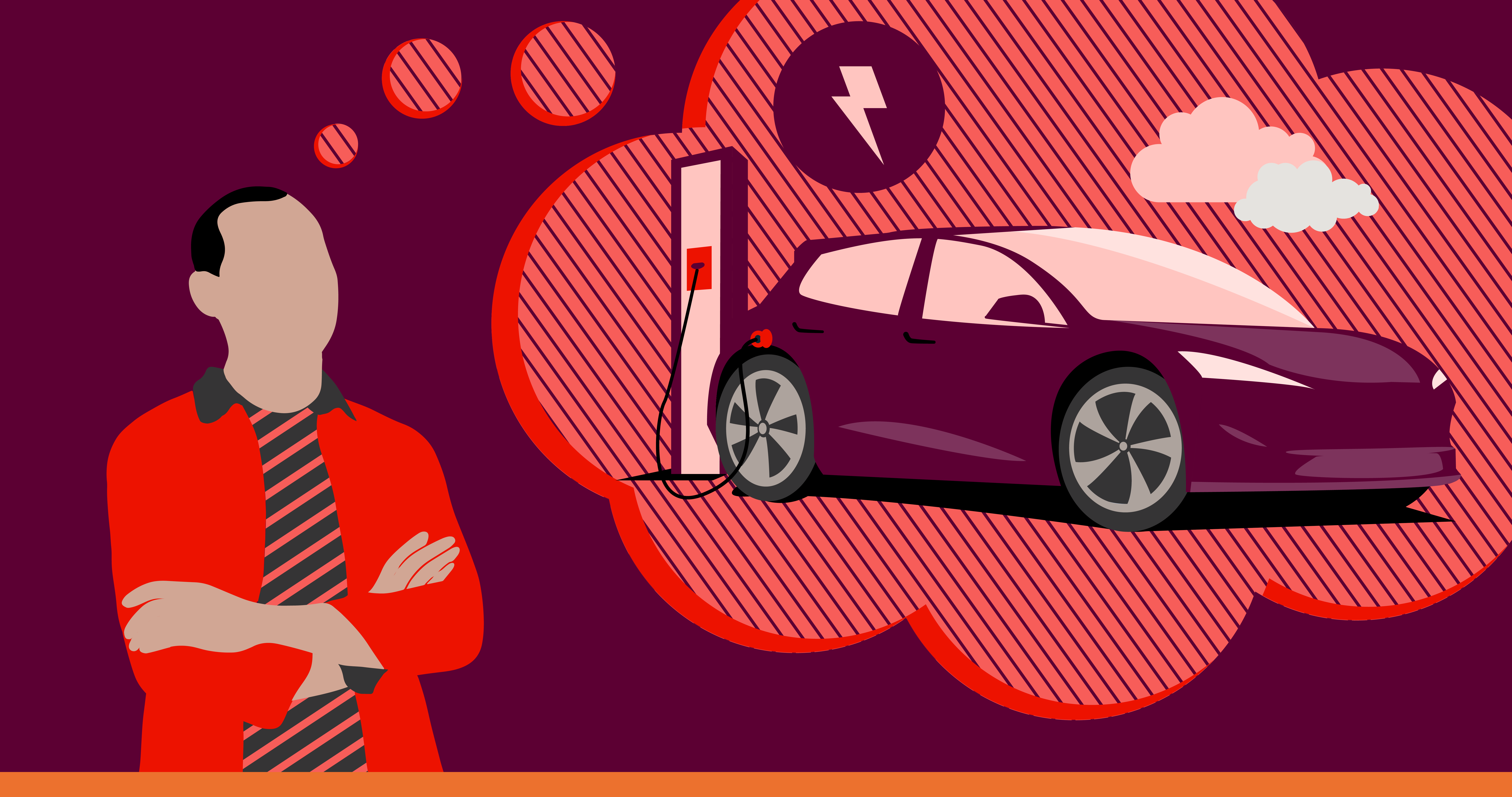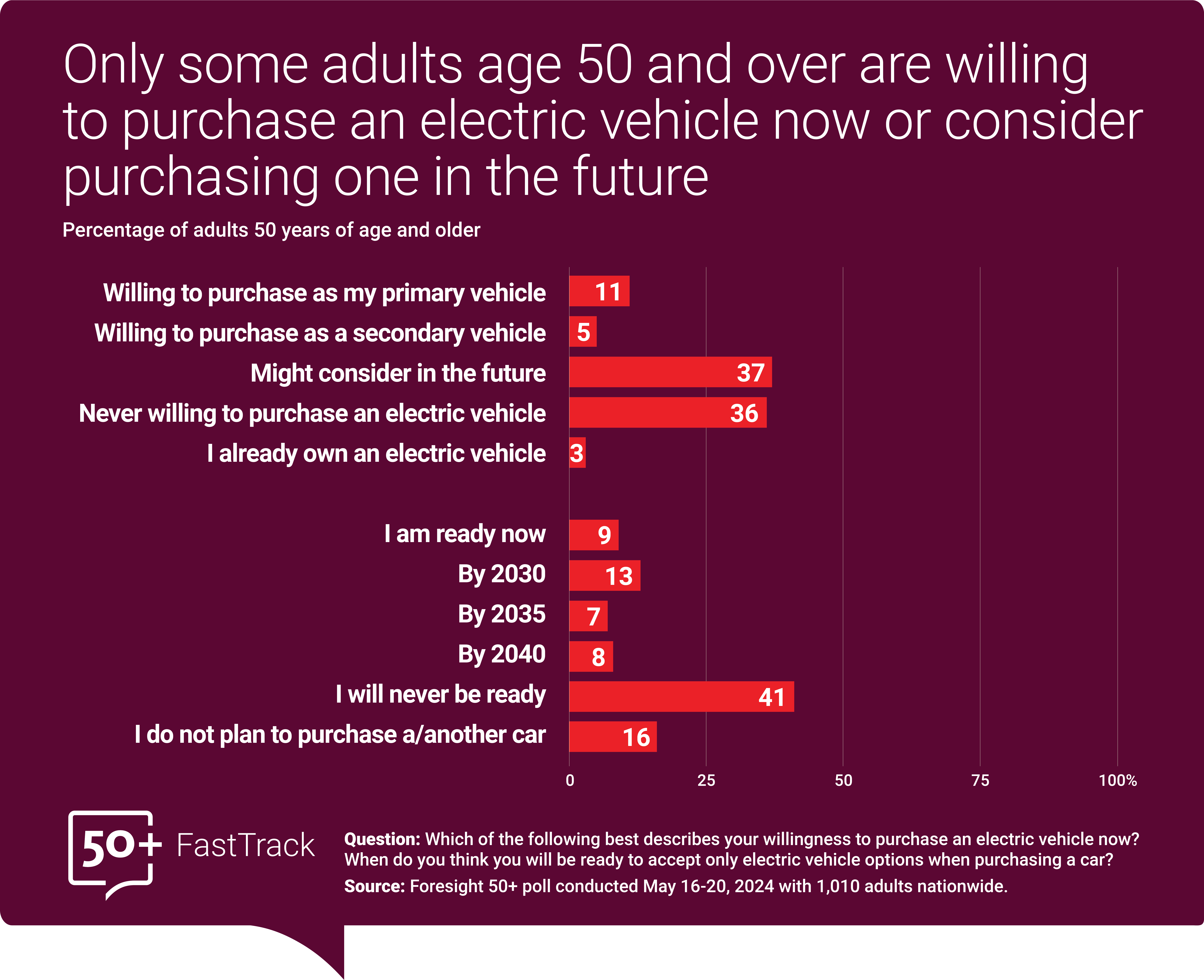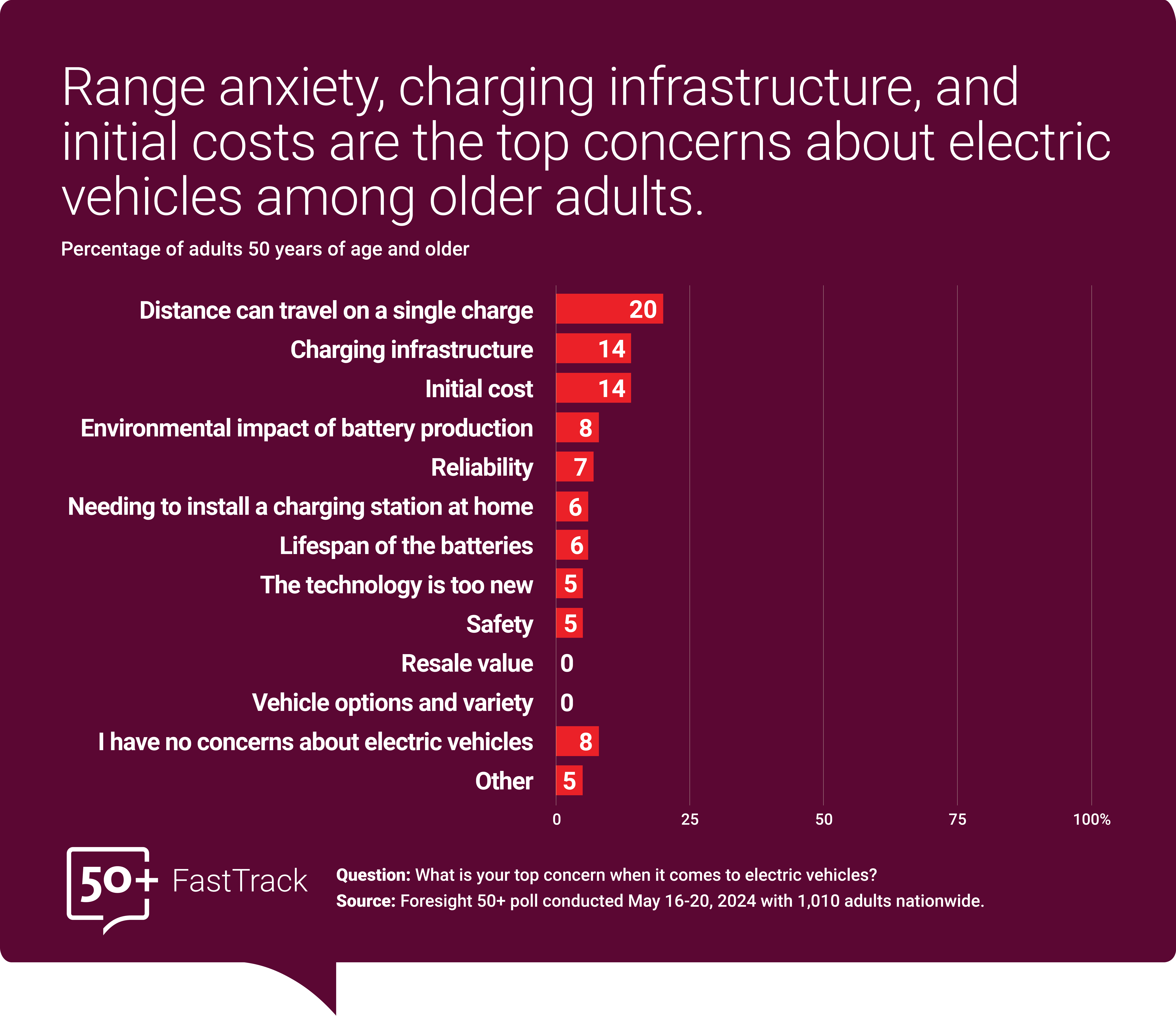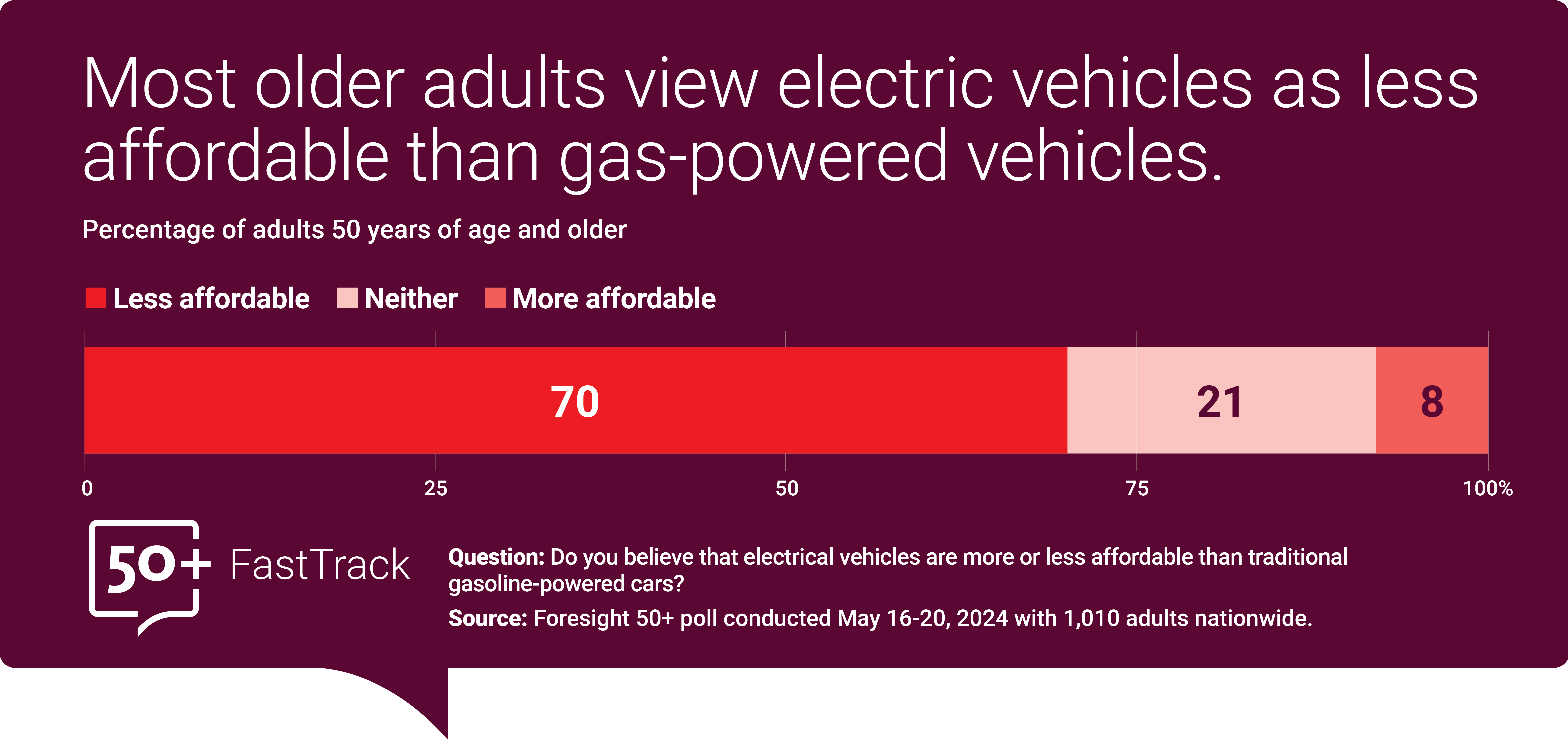Older adults with more education are more ready to transition. Those with graduate degrees are three times as likely as those without (22 percent vs 6 percent) to say they are ready for an EV-only market now. And men are twice as likely as women (13 percent vs 5 percent) to accept an EV-only market, as are those ages 50-65 versus those 65 and older (12 percent vs 6 percent).
Some older adults are more likely than others to say they will never be willing to purchase an EV. These include:
- Over half of Republicans (53 percent)—compared to a third of independents (36 percent) and a fifth of Democrats (19 percent).
- Almost half of adults 75 and older (46 percent) along with 39 percent of adults 65 to 74 years old and 30 percent of adults 50 to 64 years of age.
- Half of older adults with a high school diploma or less (47 percent)—compared to only 18 percent of older adults with more than a bachelor's degree.
- 42 percent with an annual household income of less than $30,000—compared to 19 percent of older adults with an annual household income of $100,000 or more.
- 45 percent of older adults living in the Midwest, 42 percent of older adults in the Northeast, and 38 percent in the South, compared to only 18 percent in the western region of the United States.
Range anxiety, charging infrastructure, and initial costs are the top concerns about EVs among older adults.
Older adults cite many concerns about EVs, but some rise to the top. Range anxiety is most commonly cited, followed by charging infrastructure and initial cost.









